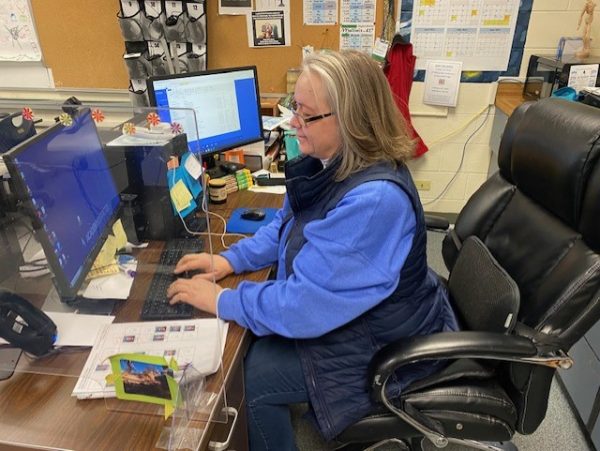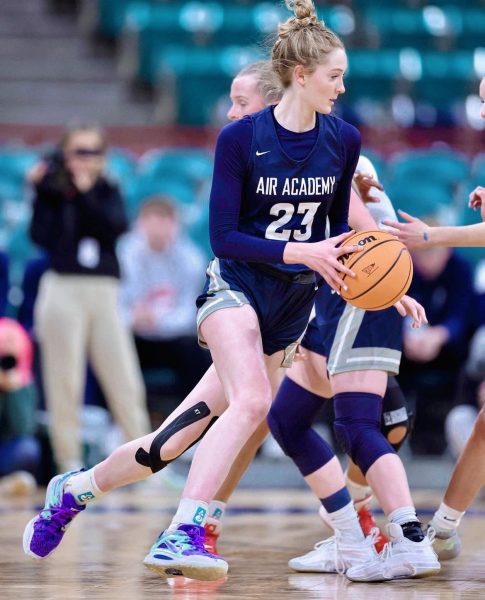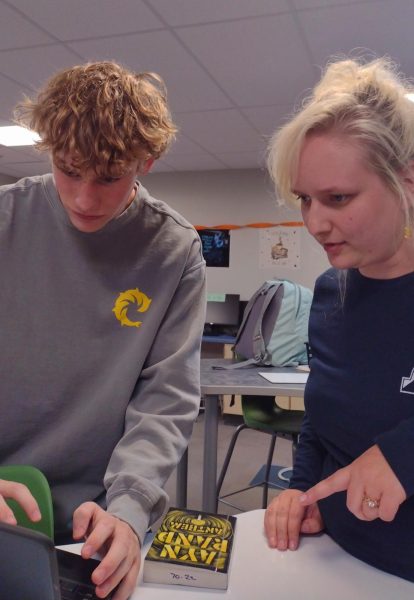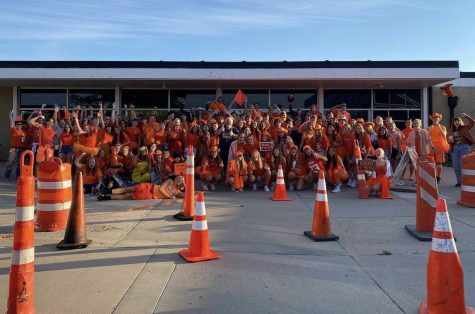Surviving at Sixteen: Students in the Workforce
There comes a time in most teenagers’ lives when their parents confront them about getting a job. Whether it is to help support the family, save up for something big, or just to earn pocket money, teenagers find themselves scrambling through applications to find the perfect job.
When entering high school, schedules are filled with hard classes, sports, social events and more. So how can teenagers find time to fit working into an already chaotic life?
According to the Child Trends’ website, a census in October of 2017 shows that “51 percent of all youth ages, 16-24, were employed, either full or part-time.”
Freshman Angel Jimenez has been in the workforce ever since he was 12, working at the family-owned business, Jarrito Loso Mexican restaurant.
“My parents always taught me to save and invest your time and money for the future, so you don’t have to work as much as an adult,” said Jimenez.
Working students often rush out of the busy school parking lot and cancel social events in order to make it to their shifts. But is it all worth it?
Jimenez believes that spending the money you make in a smart manner will lead to finishing high school with a good amount of savings to prepare for the real world.
As rewarding as it is to get paid and start saving for the future, some teens acquire a job to settle unpaid dues or even earn to the money to live on their own. Each new paycheck is swallowed by bills, and all the hard work goes towards surviving another day.
Senior Kaitlyn Hansen has been working at Steel Athletics for a few months, after receiving the job opportunity from her gymnastics coach. She started working mainly to pay off her speeding tickets, but also to take care of her own responsibilities as she is heading towards the end of high school and further into adulthood.
“It’s pretty much for supporting myself; it does affect my social life since I work a lot, so there are times that people want to hang out and I’m just stuck at work,” said Hansen.
Some students are left with adult responsibilities that start way prior to actually reaching the legal age, leaving them with all the worries of a grownup.
Junior Tiller Stanton found herself making a living to survive on her own at a very young age. Spending some time away from home, she has a job as a Target cashier where she uses her earnings for gas money, phone bills, groceries, clothes, and the expenses while living with friends.
“My parents told me I had to pay for college, and I got a job because babysitting was just not enough. In order to support myself not through my parents while I wasn’t living with them, I needed a sort of income to pay for my own food, and help with the groceries of the people I live with,” said Stanton.
Students of all different genders, ages and races get into working for different reasons. Though it may become hard and stressful at times, it brings a sense of individuality and prepares them for the real world.
All of the interviewees had their own unique story about working, and each of them concluded the interview with a smile. They all come to school every day like any normal kid, but they take on the responsibility of an adult right when the clock reads 2:45 and the second part of their day begins.

heyo i'm mida (short for parmida), and i hate uppercase letters. i am a senior this year at aahs and this is my second year as part of the jetstream journal...


















